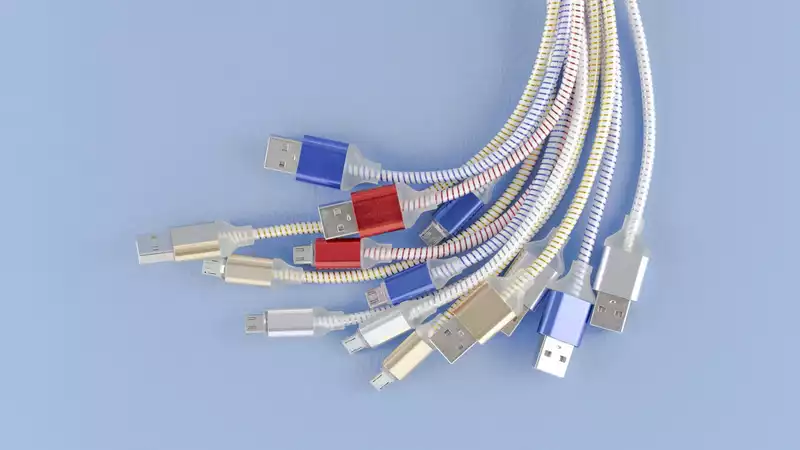The USB Implementers Forum (USB-IF), the umbrella organization for all things USB, has announced new guidelines to simplify the branding of USB cables. This means a new logo and, more importantly, a more straightforward naming convention for USB products.
According to a report by The Verge (opens in new tab), we should see fewer confusing brand names on USB cables and products in the near future. This means we can finally say goodbye to meaningless USB cable types like "SuperSpeed Certified USB" and "USB4 Gen3x2," in favor of descriptions that don't require a Wikipedia page to understand.
This highlights the problem with the old naming convention: most consumers have no idea what kind of USB cable they are getting without doing some research (and even that research process can be frustrating.) USB-IF, the new naming convention will hopefully provide a clearer description of what the cables are and what they do. Jeff Ravencraft, COO of USB-IF, told The Verge, "What consumers want to know is: What consumers want to know is what is the highest data performance level that the product can achieve.
"SuperSpeed USB 10Gbps" is now simply "USB 10Gbps."
"USB4 20Gbps" becomes "USB 20Gbps"
USB Type-C cables now display a logo on the packaging and on the cable itself indicating power capability (opens in new tab) such as 60W or 240W in addition to the transfer rate. So you can tell if that USB Type-C cable can provide enough power for your laptop without having to read through reader reviews and hope for the best.
USB 2.0, or USB Hi-Speed, will not adopt a new name. The reason for this is that branding the port as "USB 480Mbps" could confuse people into thinking it is faster than "USB 5Gbps". As the report points out, the new guidelines seem to focus more on power delivery and transfer speed labeling. Some USB Type-C cables can also output video, but there doesn't seem to be any indication of that in the new USB-IF rebranding scheme; USB-IF at least leaves us with something to be confused about.
USB is an open standard, and the USB-IF cannot prevent companies from using their favorite brand name for new USB products; it only applies to USB products that want to be certified by the USB-IF. In other words, this is a loud and clear proposal.


Comments